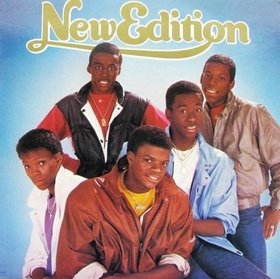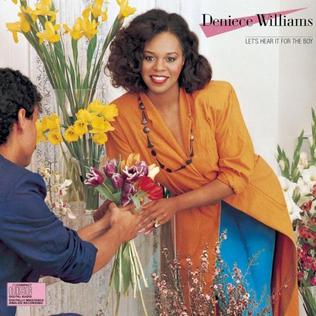Newcleus was an American electro and old school hip hop group that gained popularity in the early 1980s. The group is primarily known for its 12-inch single "Jam-On's Revenge" and "Jam on It" (1984), which began as an anti-rap joke, according to founding member DJ and producer Ben Cenac.
At the time (1981) we were going by the name Positive Messenger and were making music that had a purpose, either messages of love or faith or talking about the conditions of the world. However, we were still doing lots of Hip-Hop jams with our DJ crew Jam-On Productions. So, one of our DJs, Salvador Smooth, kept nagging me to do a Rap song. Having come out of Hip-Hop street battles in Brooklyn in the ’70s, I didn't really think much of the Rap records that were playing on the radio, so I figured as a joke I would make a parody jam ... I threw in an idea from an [event] that actually had happened in the ’70s, when a DJ who we had just blown out in a battle said to me "Yeah, you guys are bad, but you can't do this… wikki wikki wikki wikki," meaning how we didn't scratch on the turntables.
I used to play "Jam-On's Revenge" at our parties and it would fill the dance floor, so even though I had never planned to release it, when I was shopping Positive Messenger for a deal I put it on the tape just to fill out space at the end. Turned out it ended up being the track that drove everybody crazy! So, we went with it and changed our names to Newcleus."

Caught in the Act is a live double album by Styx, released in 1984. It contains one new song, "Music Time," which was released as a single, reaching #40 on the Billboard Hot 100 charts.

Lights Out is the debut solo album by Peter Wolf, released in 1984. The album was dedicated "to the memory of Edith Marie Hasselman and Edward Mant Hood".

All the Best Cowboys Have Chinese Eyes is the third solo studio album by English rock musician Pete Townshend, released on 14 June 1982 by Atco Records. Chris Thomas produced the album and it was recorded by Bill Price at three separate recording studios in London, England, which were Eel Pie, A.I.R. and Wessex. The album peaked at No. 32 on the UK Albums Chart, and at No. 26 on the US Billboard 200.
Michael Jonzun is a musician and music producer. His specialty genres are electro, electronic dance, and electrofunk.
Jonzun Crew was an American electro and early funk–hip hop group that was active in the 1980s. The group was led by Michael Jonzun, his brothers Maurice Starr and Soni Jonzun, and Carl.

Two Sides of the Moon is the only solo studio album by the English rock musician Keith Moon, drummer for the Who. It peaked at No. 155 on the Billboard 200. The album title was credited to Ringo Starr. Rather than using the album as a chance to showcase his drumming skill, Moon sang lead vocals on all tracks, and played drums only on three of the tracks, although he played percussion on "Don't Worry Baby". The album features contributions from Ringo Starr, Harry Nilsson, Joe Walsh of the Eagles, Jim Keltner, Bobby Keys, Klaus Voormann, John Sebastian, Flo & Eddie, Spencer Davis, Dick Dale, Suzi Quatro's sister Patti Quatro, Patti's bandmates from Fanny Jean Millington and Nickey Barclay, and future actor Miguel Ferrer.
Space Cowboy may refer to:
Larry Curtis Johnson, better known by his stage name Maurice Starr, is an American musician, songwriter, and record producer. He is best known for his production work for boy bands New Edition and New Kids on the Block. He was fired by New Edition for embezzling funds.

Break Out is the tenth studio album by American female vocal group the Pointer Sisters, released on November 1, 1983, on Planet Records, distributed by RCA Records. It is the Pointer Sisters' most successful album to date, peaking at number eight on the Billboard 200 and being certified triple-platinum by the RIAA.

Louder Than Words is the fourth studio album by American singer Lionel Richie. It was released by Mercury Records on April 16, 1996, in the United States. The album marked Richie's debut with the record label as well as his first album of new material in 10 years after a longer hiatus during which he went through a much-publicized divorce from his first wife Brenda Harvey and the loss of his father and a close friend. Apart from chief producer James Anthony Carmichael, the singer worked with Jimmy Jam and Terry Lewis, Babyface and David Foster on Louder Than Words.

Candy Girl is the debut album of New Edition, released by Streetwise Records on July 19, 1983. The album was produced by Maurice Starr and Arthur Baker.

New Edition is the second studio album by American quintet New Edition, released on September 28, 1984, in North America. It was their first album on MCA Records. It was also their first album without manager/producer Maurice Starr who would depart from the group during the making of the album after the group accused him of stealing their monetary earnings from their platinum debut. The album was produced by Vincent Brantley & Rick Timas, Grammy-nominated producer Michael Sembello & Richard Rudolph, Ray Parker Jr. and Peter Bunetta and Rick Chudacoff. The album reached #6 on the Billboard 200 and #1 on the Irish Albums Chart, and the R&B/Hip Hop Albums Chart.

Into the Gap is the fourth studio album by British pop group Thompson Twins, released on 17 February 1984 by Arista Records. The album was recorded during 1983 at Compass Point Studios, in Nassau, Bahamas, and was produced by Alex Sadkin who had produced the band's previous studio album, Quick Step & Side Kick (1983).

"Planet Rock" is a song by the American hip hop artists Afrika Bambaataa and the Soul Sonic Force. The song was produced by Arthur Baker and released by Tommy Boy Records in 1982. The recording came together after DJ and producer Baker met with Bambaataa and the two bonded over the idea of creating a song about their mutual appreciation for the band Kraftwerk. Baker and Bambaataa had worked together previously on the song "Jazzy Sensation" and decided to compose a more electronic based version of the hip hop song, as opposed to the more disco-oriented work popular at the time. Along with musician John Robie, the group recorded the single at Intergalactic Studios in New York. Robie duplicated the sound on the record and had Bambaataa's rappers in the Soul Sonic Force rap over it. To create the raps, the lyricist of the group, Emcee G.L.O.B.E., had to develop a style he called "mc popping", which involved rapping off time, an unusual style at the time.

"Looking for the Perfect Beat" is a song by Afrika Bambaataa & the Soulsonic Force. The song was produced by Arthur Baker and John Robie and was the follow-up track for the group following "Planet Rock". The track took much longer to develop than "Planet Rock" with Baker using cocaine and the pressure involved with creating a follow-up single. The group was developed for months in Robie's apartment while Afrika Bambaataa and the Soul Sonic Force were touring.

Hearsay is the second solo studio album by American recording artist Alexander O'Neal. It was released on July 29, 1987 by Tabu and Epic as the follow-up to O'Neal's critically and commercially successful studio album Alexander O'Neal (1985). Hearsay explores similar genres to those of Alexander O'Neal including pop, R&B, soul, post-disco, funk, and adult contemporary music, while also incorporating a newer genre, new jack swing. The songs were recorded from 1986 to 1987 in sessions that took place at Flyte Time Productions, Inc. Studio A & B in Minneapolis, Minnesota, assisted by R&B songwriting and record production team Jimmy Jam and Terry Lewis. It features contributions from guest musicians, including Cherrelle, David Eiland, and Lisa Keith, and is generally regarded as the culmination of the smoother, more adult-oriented sound of O'Neal's early work.

Let's Hear It for the Boy is the eighth studio album by American recording artist Deniece Williams, released on April 16, 1984, by Columbia Records. The album reached No. 26 on the US Billboard 200 Albums chart and No. 10 on the US Billboard Top R&B/Hop-Hop Albums chart.

Alexander O'Neal is the debut solo studio album by American recording artist Alexander O'Neal. It was originally released in 1985 by Tabu and Epic. The songs were recorded during 1984 to 1985 in sessions that took place at Creation Audio in Minnesota, and Larrabee Sound in Los Angeles, California, assisted by R&B songwriting and record production team Jimmy Jam and Terry Lewis.
The following is a list of albums released by record label Tommy Boy Records.













